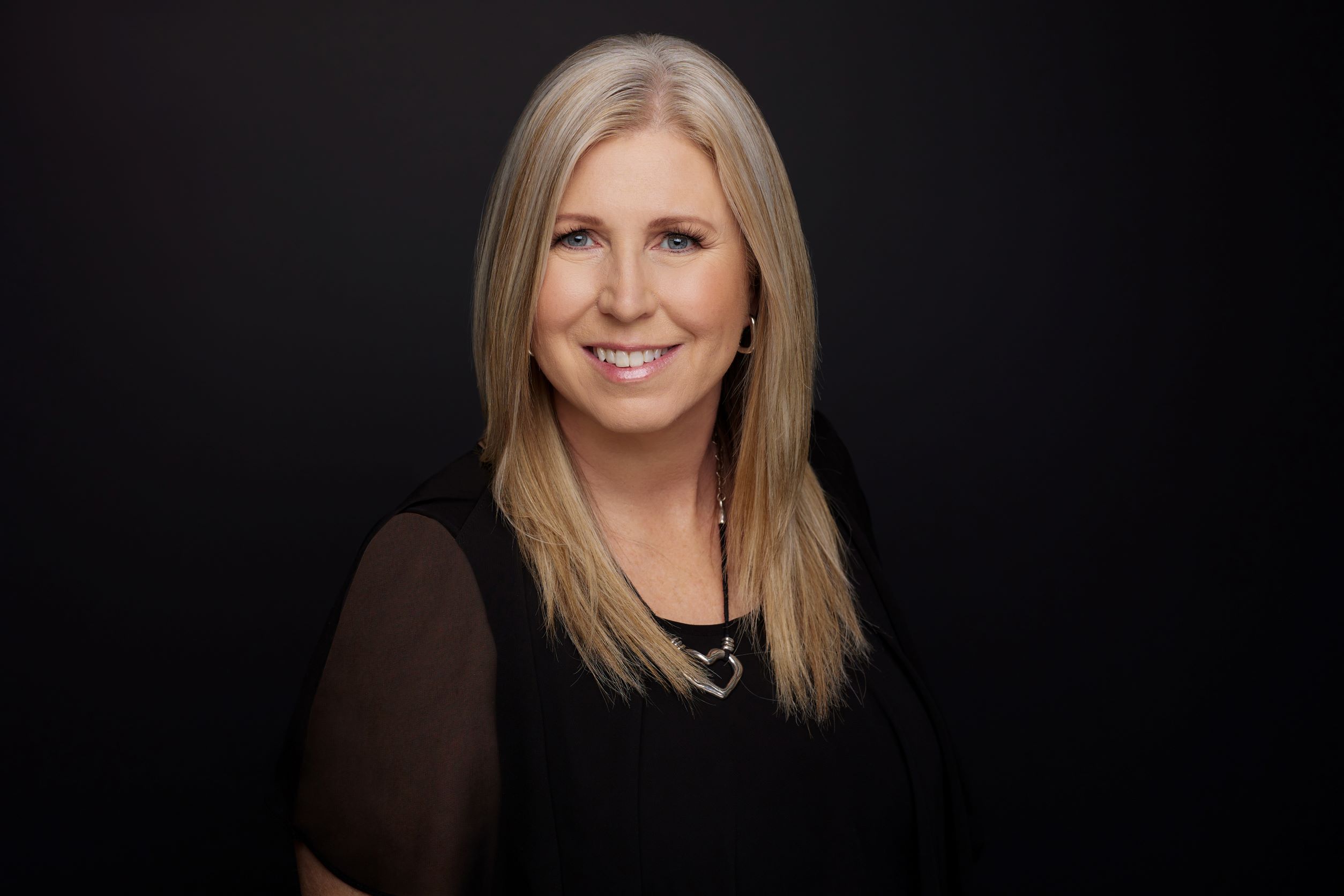Newsletter
Fall 2022

Shannon’s Story
Shannon tells her personal story and why it’s not as easy to leave as many people may think.
It didn’t happen overnight. Shannon found herself in unchartered waters. The fact that her marriage had become abusive was something she couldn’t get herself to admit. She and Pete had been together for almost 15 years.
“I’m the fixer. I was used to solving problems. My relationship just become one of those problems that I was always cleaning up after.
It started with a temper tantrum. It’s those little aggression moments, whether it’s the slamming of a cupboard or banging on the wall.
I didn’t get how much that was intimidating me. And then it became a thousand little choices where I didn’t use my voice.
You believe it’s not that bad because he doesn’t hit you.
Pete had his own business. He was dealing with a lot personally and within his organization at the time, so you make excuses for them along the way.
I hadn’t drawn a line in the sand. When things got worse, I told him flat out, I won’t tolerate this. I set my boundaries.
But then something would happen again and I’d let it slide, for lots of reasons. I had become scared of the situation, and him, slowly over time.
I just wanted to hide the things that might make him or me look bad. And I didn’t want him to blow up at a client.
Sometimes you can’t tell your best friend this stuff that was actually going on. Plus, when I was growing up, I was taught to keep your problems hidden, not to share your dirty laundry.
And people don’t share this side of their lives, much. It’s what you see on Instagram and all the good stuff. We don’t advertise our problems.”
“In addition to Pete’s harsh words and emotional abuse, the financial abuse was real.
I actually didn’t have my own money at the time because I worked for his company and I supported the growth of his business. He controlled whether I got paid or not. It was so intimidating.
When I didn’t have a pay cheque, how was I supposed to leave him? He would threaten that he could hire a good lawyer and take our kids away from me. I was completely terrified of losing my kids.
You feel like with the difference in your pay grades, you can’t put up a good fight.”
The Alter Ego. Most people only knew Pete’s happy, carefree side. They didn’t see what Shannon and her kids saw regularly.
“Pete is the fun guy in his circles. He hosted these beautiful parties, and everyone would get together and watch sports. On the outside, he would do anything for anybody.
His friends have never seen the side of him that we did, those dark faces that he made when he was angry. So they’re probably not going to believe me if I tell them.
We tried couples counselling but they don’t really show their abusive behaviours in counselling.”
To be continued…
To hear the rest of Shannon’s story, keep an eye on FearIsNotLove.ca throughout the month.
*Names have been changed to protect confidentiality

Message from our Chief Executive Officer Kim Ruse
FearIsNotLove is our new name.
It’s time to Change the Conversation.
We are into a new chapter for our agency, an evolution that will help serve even more people impacted by domestic violence and abuse in Calgary.
For almost 50 years, the Calgary Women’s Emergency Shelter has played an important role in the lives of women, children, youth and men impacted by domestic violence and abuse. Every day, our counsellors and staff provide hope and support through various programs and services to vulnerable members of our community.
The Calgary Women’s Emergency Shelter facility is, and always will be, an integral part of our services. That will not change. It is a key part of who we are and who we serve.
But because of our name, many people don’t know the real us, or how we can help. Most people don’t see our name as having something to offer them. As the Shelter program now accounts for just five percent of all the transformative work, the Calgary Women’s Emergency Shelter name no longer captures the true impact we have in the community.
The face of domestic violence and abuse has changed dramatically over the last two decades and is much more complex. The experience of domestic abuse cuts across, gender, economic and social boundaries in ways that have demanded us to work better and smarter to care for all involved.
FearIsNotLove is our new name. It will act as an avenue to launch a major social change movement and help elevate the conversation around domestic violence and abuse. It’s who we are. And it’s what we stand for.
It’s a standard that everyone, especially young people, can use to assess the health of their close relationships.
As FearIsNotLove, we will tackle the unfair assumptions, embarrassment and shame that have been attached to domestic violence and abuse for too long.
Our goal is to help people to have violence-free lives, to live without fear, and get to the ultimate outcome — love. It’s what we all want and need.
November is Family Violence Prevention Month in Alberta. During this time, we want to dispel some myths and stigmas that often lead to victim blaming or embarrassment, that may prevent a victim from reaching out for help.
Why doesn’t she just leave? Wouldn’t she be safer if she left? Domestic abuse doesn’t happen in my neighbourhood. Domestic abuse is an issue that touches so many in our community but is so often misunderstood.
I have the honour to represent FearIsNotLove in many community groups and contexts, meeting a variety of people with unique perspectives. The most common question I am asked is “Why doesn’t she/he/they just leave?” Or “Wouldn’t she/he/they be safer if they just left?”.
It sounds simple, doesn’t it? It sounds logical – remove yourself from the perceived threat or danger. Just move out and move on.
However, it is not as straightforward or easy as it sounds. Leaving an abusive partner can be difficult and at worst, dangerous or life-threatening.
Reasons people stay with an abusive partner vary and are as unique as the individual facing the dilemma. They can include; there is no safe place to stay, threats are made against their pets or loved ones, they don’t want to put others at risk, threats of suicide, they don’t have access to income or financial resources, afraid of what will happen to the children, the abusive partner isn’t always abusive, fear and they can be afraid of what could be ahead. The risk of violence and potentially lethal violence can heighten when a victim decides to leave. This can be a very dangerous time.
There are so many barriers to leaving – and leaving isn’t always the option people choose or feel is best for them. Our goal is to help supporters ask different questions – changing the conversation – and deepening our understanding of how we can help victims of domestic abuse be safer and people who use violence to stop.
One way to reframe this conversation is to ask “Why do they abuse their partner?”, “What can be done to stop the abuse?” or “How can I be supportive?”. By shifting the conversation we stop putting excessive expectations on the victim. It doesn’t change the fact that the victim may want to leave and we need to address the barriers, but it does shift our attention to stopping the abuse in the first place – potentially stopping future abuse with a different victim. This subtle shift in language also leaves the choice of how to proceed in the control of the victim.
Language and attention or focus are important considerations in understanding and responding to domestic abuse. Over 70% of victims will disclose their situation to family or friends before they ever call a formal service. This is great news as it means we have an opportunity as a community to support victims in reaching help sooner and without judgement. One way to make a significant impact in reducing and ending domestic abuse is to become great social supporters.
If someone discloses to you – instead of asking why they don’t leave – it can be far more powerful and effective to ask “how can I support you?”. If someone receives a supportive social response, they are far more likely to pursue further help.
And – if someone discloses they are a victim of abuse – or someone who uses abuse – we are here to help. Call our 24-Hour Connect Domestic Violence & Abuse Helpline: 403-234-7233 (SAFE). A simple shift in the conversation can make all the difference.
We are pleased to welcome two new members to our Senior Leadership Team!

Cecilia de la Rocha
Chief Development Officer
Cecilia discovered her personal philanthropy and volunteerism shortly after moving to Calgary from Toronto. Working as a professional engineer in project controls, she was yearning to meet like-minded female professionals who wanted to give back to their community. Never did she think her involvement with the Artemis Charitable Foundation, both as a general member and board director, would turn into a new profession as a Certified Fund Raising Executive. Since her volunteer days, Cecilia has served as Executive Director of a charity supporting pregnant and parenting youth, raised funds for Calgary Reads, an early literacy initiative, and most recently helped lead the Advancement efforts for the University of Calgary’s Werklund School of Education, as their Director of Development. Cecilia’s fundraising experience extends from annual giving, major gifts, planned giving, to capital campaigns. She is excited to have joined the leadership team at FearIsNot Love and honoured to be working alongside the dedicated staff who realize such a tremendous impact in our community.
Outside her work, Cecilia enjoys playing tennis, cycling, traveling, and spending time with her friends and family (especially her 2 young grandchildren).
We are pleased to have Cecilia join our team this past July.

Rekha Gadhia
Chief Program Officer
Rekha Gadhia holds a bachelor of Science and Master of Arts degree from India, and a Master of Business Administration from Florida, USA. She came to Canada 14 years ago and since then has been working in the non-profit sector in various leadership roles. Her most recent role was at the Calgary Immigrant Women’s Association as the Family Services Department Manager. Being an immigrant with experience living and working in multiple countries, Rekha relates to many issues faced by refugee, immigrant and newcomer families and is passionate about empowering them by drawing on the strengths, knowledge and values they bring with them. She is also extremely passionate about her work in the human services sector, particularly in the area of domestic violence prevention and intervention. Rekha also has over 20 years of volunteering experience in the non-profit sector in multiple countries to support youth, children, men and women and empower their families as a unit. She holds great pride in being able to give back to the community and is driven by the notion “In the joy of others, lies our own”.
Rekha is really excited to join FearIsNotLove as it aligns with her passion to be a changemaker in ending domestic violence and abuse and the belief that every human has the right to feel safe, respected, supported and loved.
Rekha joined our team in September 2022. Welcome to the agency.

Donor Spotlight: Trail Appliances
Started in 1974 by the Broderick Family, Trail Appliances has grown over the past 48 years to become the leading independent appliance retailer in Western Canada. As a family-owned and operated business from the beginning, community has been a focus of the family.
In 2017 that community focus brought Trail Appliances to CTV’s Toy Mountain campaign as the Presenting Sponsor in support of the Calgary Women’s Emergency Shelter, now FearIsNotLove. The Calgary Trail Appliances’ staff jumped to the challenge and helped grow the campaign by over 60% (as compared to the previous year). This success led to another five years of support, with 2022 being their 6th consecutive year as Presenting Sponsor.
Each year they dedicate valuable space to build the Toy Mountain and their employees fully embrace the campaign and look forward to being a part of it all. Their time is dedicated to organizing and counting the toys, as well as sharing information about the impact of our work with the stores’ visitors to all three of their Calgary locations.
The support doesn’t end with Toy Mountain. Trail Appliances offers their backing to FearIsNotLove throughout the entire year, in numerous ways. From supporting the Turning Points Gala, to being a resource for our appliance needs, we know we can count on them as a community partner. Their corporate support has even inspired their team members to become regular volunteers at FearIsNotLove.
When asked about their involvement, Sandee Wahl-Meyers, Director of Marketing said, “FearIsNotLove’s many programs are incredibly important to the City of Calgary. We are proud to be involved in anyway we can. We know the continued support from the community is why we’ve been around for 48 years so this is one of the many ways we can give back.”
We are immensely grateful to Trail Appliances for their sustained support of our critical cause. It is a large part of the reason why together, we can do even more to overcome domestic violence and abuse in our city.

“Why don’t they just leave?”
In this newsletter you’ve been learning about some of the reasons a victim might not “just leave” an abusive situation. It’s not as easy as many people think. Here we wanted to go into a little more detail. These are just some reasons why leaving an abusive partner can be difficult and even dangerous.
There’s no safe place to stay
They could be followed and confronted, especially if they flee to known friends or family.
They have no access to a phone and/or money
A common form of control is restricting access to communication or funds. In some cases, they might have even been forced to stop working and can’t make money of their own.
Threats have been made
A person that uses abuse may threaten a victims’ loved ones, friends, family, kids, or pets in order to manipulate or control them. These threats could be acted on if they were to leave. An abuser might even threaten to harm themselves.
They still love the person
Sometimes people still love the person who is behaving abusively. They want their children to grow up with an intact family and still appreciate the good qualities in the person. They take their commitment to the relationship seriously, they just want the abuse to stop.
Pressure or judgement
Some people stay because they have strong beliefs about keeping the family together. Sometimes, relatives or in-laws blame the victim for the violence and insist they stay.
They can’t imagine that a different future is possible
Often as a result of domestic violence and abuse, mental health conditions such as depression can emerge. These impact a person’s self-confidence, and instill fear. This makes it difficult for them to believe a safer future is even possible.
Leaving can put them at higher risk
The most dangerous time for an abused woman is when she attempts to leave her abuser. Most women who are murdered by their partners are killed after they leave the relationship. Women are six times more likely to be killed by an ex-partner than a current one, and almost 60% of police-reported dating violence happens after the relationship has ended.